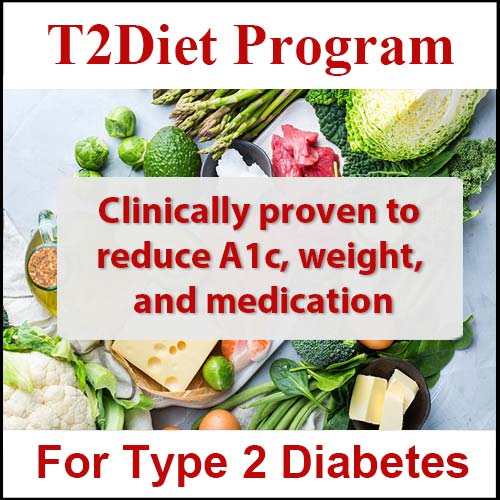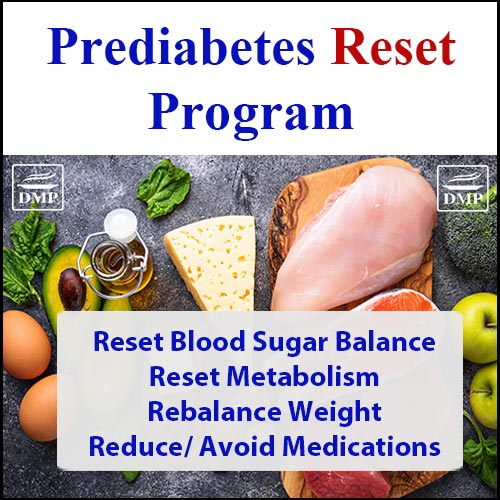Table of Contents[Hide][Show]
- LISTEN TO THE PODCAST
- CHAPTERS
- OVERVIEW
- Why Diet Sustainability is Important
- 1. Transition from ‘Dieting’ to a Sustainable Eating Plan
- 2. Establish a Baseline Diet That Works for You
- 3. Embrace Consistency Over Perfection
- 4. Practice Self-Compassion
- 5. Resist the Urge to Flip-Flop
- 6. Seek Support
- 7. Cultivate a Positive Mindset
- Transcript
It’s a common misconception that to manage diabetes effectively, one must adhere to a rigid, joyless diet – that’s certainly not the case!
The secret to a sustainable diabetes diet lies in balance, flexibility, and a kind approach to oneself; a balanced approach that supports your health while allowing you to enjoy the richness of life.
Discover 7 key tips for diet sustainability in this podcast episode.
LISTEN TO THE PODCAST
CHAPTERS
2:45 1. Transition from ‘Dieting’ to a Sustainable Eating Plan
3:20 2. Establish a Baseline Diet That Works for You AND Gets Results
4:45 3. Embrace Consistency Over Perfection
5:55 4. Practice Self-Compassion
7:02 5. Resist the Urge to Flip-Flop
8:36 6. Get Support
10:02 7. Cultivate a Positive Mindset
13:05 Why Diet Sustainability is Crucial
Support the podcast by leaving a 5-star rating and review on Apple, Spotify or our Website – Thank You!
OVERVIEW
Managing diabetes through diet doesn’t have to mean rigid restrictions or missing out on life’s celebrations. It’s about finding a balance that supports your health while allowing you to enjoy the richness of life.
Here at DMP we support you to find an eating plan that’s natural and sustainable for you; and also helps you to get optimal diabetes health results.
Why Diet Sustainability is Important
Understanding the importance of sustainability in managing diabetes through diet is crucial for long-term success.
A sustainable approach ensures that dietary changes are not only effective in the short term but also maintainable over the long haul, preventing the common cycle of dieting and relapse.
This consistency is vital for stabilizing blood sugar levels, achieving and maintaining a healthy weight, and reducing the need for medications.
A sustainable diet also fosters a healthier relationship with food, reducing the risk of disordered eating patterns and promoting overall mental and emotional well-being.
Diet and nutrition is a primary treatment strategy for diabetes. But ultimately, the goal is to integrate diet and nutrition strategies into your life in a way that is both enjoyable and conducive to good health.
Implement these 7 key tips with help with sustainability:
1. Transition from ‘Dieting’ to a Sustainable Eating Plan
The first step to sustainability is to shift your mindset from ‘dieting’ to adopting an eating plan that is part of your daily life.
Diets are often seen as temporary, restrictive measures that yield quick results but are hard to maintain. In contrast, a sustainable eating plan is designed to be integrated into your lifestyle, supporting long-term health and enjoyment of food.
>> Consider joining us as a member today
2. Establish a Baseline Diet That Works for You
Establishing a baseline diet that supports your health goals is crucial. This means finding a pattern of eating that helps maintain healthy blood sugar levels, achieve optimal weight, and reduce medication requirements.
The key is consistency and ensuring that this baseline diet is one you can return to easily, providing the foundation for your nutritional well-being.
3. Embrace Consistency Over Perfection
Life is filled with exceptions—birthdays, holidays, special occasions—and it’s okay to indulge in these moments.
What matters more is your commitment to your baseline diet most of the time. Returning to your regular eating pattern after occasional indulgences is what will support your health goals in the long run.
Consistency is more important than perfection!

4. Practice Self-Compassion
It’s natural to sometimes stray from your eating plan. When this happens, be kind to yourself. Avoid self-criticism, which can lead to a negative spiral and derail your efforts.
Remember, progress, not perfection, is the goal. Self-compassion encourages a positive relationship with food and yourself, making it easier to return to your baseline diet.
5. Resist the Urge to Flip-Flop
With a plethora of diets and health trends constantly emerging, it’s tempting to jump from one to another.
However, flipping and flopping is never beneficial. Instead, it’s important to find and stick to a proven, flexible program that yields results – lower blood sugar and A1c, weight loss and reduced medications.
Programs like the T2Diet, which have undergone rigorous research and testing, offer a reliable foundation for managing diabetes sustainably, both now and in the long term.
6. Seek Support
A strong support network can make a significant difference in your journey. This can come from online communities, family, friends, or local support groups. Sharing experiences, challenges, and successes provides motivation and reinforces that you’re not alone in your efforts to manage diabetes through diet.
Most importantly though, you need a trusted, reliable professional support system, such as we provide here at DMP. Consider joining us as a member, for access to all the resources, tools and support you need to make your diet sustainable and get results.
7. Cultivate a Positive Mindset
Lastly, a sustainable approach to dieting is as much about mindset as it is about food.
As Dr. Doug J Moore shared with us in Episode 5 of Type 2 Diabetes Talk, recognizing negative patterns, practicing mindfulness, and setting realistic goals can help you maintain focus and motivation. Learning from setbacks rather than dwelling on them enables you to adapt and thrive.
Incorporating these seven key tips into your approach to managing diabetes through diet can lead to a more balanced, enjoyable, and sustainable lifestyle.
Remember, the journey towards health is not linear, and each step forward, no matter how small, contributes to your overall health and well-being!
Transcript
Click Here To View
Dr Jedha, Host
Dr Jedha here and welcome to episode 29 and to help us kickstart today’s topic we’ve got a voice message from Lilory.
Lilory, voice message, 1:09
While I have quite a bit of information on Type 2 Diabetes and I’ve joined the lifestyle clinic and have a fairly good idea on what is required to manage Diabetes Type 2, my greatest problem is sustainability. Sometimes I am quite good with it. Other times, because I may be engaged in some activities or might have gone out or for some other reason, I don’t seem able to keep up with a plan for a very long duration. It seems as though I have to start over over and over again. So I think sustainability is a subject that requires some attention.
Dr Jedha, Host, 2:09
Thanks for this Lilory, sustainability can be a challenge for lots of people and it’s something that I talk about quite a lot and that’s because sustainability in your eating plan is so important.
So, first we’re going to cover 6 key things to consider, then we’re going to cover why we might keep getting pulled off track from our healthy routines, and why diet sustainability is so important.
So here’s 6 key things to consider.
Firstly, stop ‘dieting’ – There are so many ‘diet’s’ out there and we’ve all been caught up on thinking they’ll work, but we know that most of the time ‘diets’ don’t work and being stuck in the ‘diet’ mentality can keep you stuck in a yo-yo dieting cycle.
Instead, think of it this way: Your ‘diet’ is the way you eat on a daily basis. Your diet is an eating plan that helps you eat to treat diabetes, and your diet needs to feel natural and sustainable to you. And that brings me to the second point.
You need to have a baseline ‘diet’ that you know works to support you to achieve and maintain your goals such as healthy blood sugar, optimal weight and reduced medications. You might be ‘thinking’ you know what to eat – but has it helped you achieve your optimal goals? If the answer is no, or not really, then it’s not the right baseline diet. So, firstly you do need to give yourself around 16 weeks to follow an eating plan that’s proven to work to achieve results, such as my clinically proven T2Diet Program. As we heard from John, the program helps you clearly understand what to eat, what to avoid and minimize. But the T2Diet is not a regime, it’s not strict and there is lots of flexibility provided. The T2Diet gives you guidelines that help you discover an eating plan that feels natural and sustainable to you. Once you find that and you see the incredible results that you get, you’ll know you’ve got the right baseline diet for you and there will be no looking back – you’ll be able to default to this way of eating naturally no matter what happens. It becomes a lifestyle, not just another ‘diet.’ So here’s the next point:
Consistency is more important than perfection
Are you going to be perfect all the time? No. Is there room for cheats and leniencies? Absolutely, yes. That’s why we have a baseline ‘diet,’ an eating plan that’s the foundation for how we eat on an everyday basis. But if you’re going to your grandkids birthday party, enjoy a slice of cake. If you’re going out to dinner with friends, you might choose wisely overall, but enjoy a bit of something so you don’t feel like the odd one out. If you’re on holiday, you might be a bit more lax than usual. All of this is okay. It’s completely normal.
So here’s the thing: Consistency is more important than perfection.
Just keep your baseline diet, your foundation at the top of mind. Go to the party and enjoy the cake, but come back home and enjoy your baseline, revel in your baseline, because you know your baseline, your foundation is what keeps you feeling your best.
Be kind to yourself – if you go off track, eat cake at a party, indulge a bit too much at dinner, or get a bit too relaxed on holiday, that’s okay. Don’t beat yourself up over it. Don’t feel guilty. Don’t let it send you on a binge or downward spiral. We need to get rid of thinking I’m ‘good’ when I do this but ‘bad’ when I don’t something else.
REMEMBER: Consistency is more important than perfection.
All of this is okay. It’s completely normal. It’s also okay to take one step forward and two steps back. Take positive steps forward each day, even if some days they may seem small. Be kind to yourself. Just get back to your baseline diet, your foundation as soon as you can. When we feel healthier, we feel better physically, mentally and emotionally, always remember to put you and your health as a priority.
The next thing is, don’t flip – I’ve seen people doing tremendously well on the T2Diet Program, then they get bad advice from another health professional or see a shiny object out there on the wild west web. Then they’re off on a tangent trying some other ‘diet’ and it leads them down the rabbit hole on another spiral that doesn’t work, that often leaves them back where they started.
This can be really frustrating, so, going back to point 2, you need to have a baseline ‘diet’ that you know works to support you to achieve and maintain your goals such as healthy blood sugar, optimal weight and reduced medications. You need to commit yourself for an initial 16 weeks to a proven program because you also want to get your health at a good baseline, right? Now, there aren’t that many scientifically proven, clinically effective programs. My T2Diet Program is one that’s been through a randomized controlled trial, which is gold standard research for proving effectiveness and people see lower A1c, weight and medications. It’s proven to work. Take a program like this and stick to it as a lifestyle, don’t flip flop around trying the next best thing. And the thing is, because people find what’s natural and sustainable for them in the T2Diet Program, they don’t feel like they are on a diet anyway. It becomes a sustainable lifestyle you can maintain long term.
Finally, get support – one of the greatest advantages we have now is access to the internet, which means you can have support at your fingertips whenever you need it. But like we explored way back in episode 2, there’s a lot of misinformation and simply bad information out there on the wild west web, so again, you need to find a reliable and trusted source that provides proven support. Okay, yes I’m talking about the T2Diet Program a lot today. But the thing is, I know it works. I developed the program based on the foundations of helping our members achieve results over a decade. I took the program through a randomized controlled trial. I know it works and I don’t want you out there on the wild west web, scrambling to find something that does work.
There are lots of other options for support too. This podcast is a form of support. Friends, family, local support groups are all forms of support you can tap into, just to have the reminders and encouragement that you’re not alone, that’s the most important aspect of getting support. The little reminders and the encouragement make all the difference in helping you feel positive on your health journey.
10:04
At the beginning Lilory said the challenges that keep pulling her back from the routine were things like going out and outside influences. Without a doubt, we’re always faced by these challenges, all of us are social influences, environmental influences, shiny objects, new diets, news headlines, gosh, there are so many things that can lead as astray, right?
But when we drill down, what is it that is pulling us back from our routines?
It really comes down to mindset.
Back in episode 5, Dr Doug J Moore shared key strategies for recognizing patterns in our habits and routines, and more importantly, ways we can shift into thriving mode where we feel we’re on a pathway of growth and positive outcomes, so I’d highly recommend anyone struggling with diet sustainability start with the mindset stuff, go back and listen to episode 5.
Essentially, if we keep ending up off the road, it could be a habit and pattern. Dr Moore spoke about how we tend to repeat the same thing over and over again, just because it’s part of our habit, it’s ingrained. And for Lilory, it sounds like the pattern of going well for a while, then ending up off the road is a habit and pattern.
One of the things that may be pulling you back could be negative self-talk or lack of self-compassion. When we beat ourselves up or engage in harsh self-criticism, which can happen when we go off track, this can lead to further demotivation and even abandonment of our health goals. Perhaps you need to work on your inner dialogue so it becomes more supportive for you.
Maybe when you’re on track, you’re pushing yourself too far, setting unrealistic goals that could be leading to overwhelm and failure.
Dr Moore spoke about how we need to engage in self-compassion and learn to be present in the moment so we can become more aware and conscious of these habits and patterns. One of the key things that Dr Moore spoke about was to learn from reflection by using a journaling exercise, where you divide a piece of paper into two columns, in one column you journal what happened, and in the other column you journal what the lesson is. And as we begin to use this reflection process, it helps us to understand our experiences, learn from them, and adjust our approach to a more adaptable and sustainable mindset; and then our actions also follow so we begin to find we’re following our diet effortlessly, most of the time. Because remember, consistency is more important than perfection.
We do know diet sustainability is crucial for several reasons.
By focusing on diet sustainability you will have better long term health outcomes. The whole purpose of a sustainable diet is it’s designed to be followed over the long term, which is essential for any of us to be healthy but particularly important when managing a health condition. Diet sustainability will help you in achieving and sustaining lower blood sugar levels, A1c improvements, weight loss, and a reduction in medication requirements. A sustainable diet ensures the benefits you achieve continue over time, rather than offering a temporary fix, only to find yourself back at square one.
Diet sustainability is all about having guidelines that are realistic and flexible enough to fit into your lifestyle and preferences. It’s just not going to work if it’s too weird or too difficult, you’re not going to adhere to that diet very long and you’ll find yourself back at square one. That said, you do need that baseline diet that provides the best foundation for managing your diabetes.
A sustainable diet promotes a healthier relationship with food, avoiding extreme restrictions that can lead to feelings of deprivation or guilt associated with “cheat meals” or diet “failures.” This positive relationship with food can improve mental health and well-being, making your life more enjoyable and less stressful.
Essentially, diet sustainability is not just about the immediate benefits but also about ensuring that dietary changes are beneficial, enjoyable, and health-promoting in the long run.
So, for Lilory and anyone else out there struggling with sustainability, the 6 key tips we covered earlier are:
Stop dieting – Your ‘diet’ is simply the way you eat on a daily basis. Your diet is an eating plan that helps you eat to treat diabetes.
Have a baseline ‘diet’ that you know works to support you to achieve and maintain your goals such as healthy blood sugar, optimal weight and reduced medications. Once you have that foundation that feels natural and sustainable for you and works to get results, just know that…
Consistency is more important than perfection.
Be kind to yourself – stop thinking I’m ‘good’ when I do this but ‘bad’ when I do something else. REMEMBER: Consistency is more important than perfection. Just get back to your baseline diet, your foundation as soon as you can.
Don’t flip – dont chase shiny objects, the next best diet or bad advice you might receive from somewhere else. Just keep to your baseline foundation and keep taking positive steps forward each day, that is the key to success. You do need to FOCUS – or in other words, Follow One Course Until Successful.
Finally, Get support, but please, seek out the right support. Support that’s positive and encouraging and helps you to achieve optimal diabetes health.
And of course, the mindset stuff is really important so I’ll just add one more thing. You are worth it and it is worth committing to yourself, putting your health as a priority. Dr Doug J Moore also stressed the importance of self-worth and self-priority back in episode 5. To emphasize, the mindset stuff is really so important to the outcomes we experience, so please go and listen to episode 5, because Dr Moore shared some very practical strategies for overcoming hurdles.
Sometimes it does take us one step forward and two steps back, or a detour down a canyon before we find the right path. That’s all okay, it’s normal. Just be kind to yourself, and no matter where you are right now, take one positive step forward. One positive step after the other. And before long all of those steps add up to meaningful things and big results.
Importantly, stop feeling guilty when you get off track with your diet, and move forward with a completely new way of thinking, and doing. Put the 6 key tips we’ve covered today into action in your own life, work on your mindset, and it will make a difference.
And remember, it is worth committing to yourself and you will thank yourself for it!
In the next episode we’re covering a very important topic – diabetes complications and answering the question: How Do Diabetes Complications Develop?
Until then, have a great week.
Dr Jedha, over and out.
Subscribe to Type 2 Diabetes Talk on: Apple | Spotify | Amazon Music | Audible | YouTube | Podcast Index | Player FM | and more…




Leave a Reply